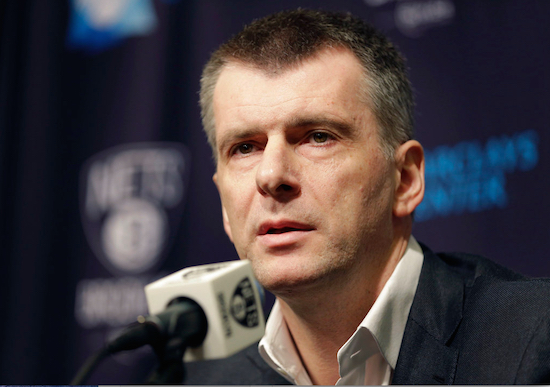Russian whistleblower seeks dismissal of libel lawsuit filed by Nets owner Mikhail Prokhorov

The whistleblower who exposed Russian cheating at the 2014 Olympics filed a motion Monday to dismiss a libel lawsuit against him, which his lawyers portrayed as a ploy led by the Russian owner of the Brooklyn Nets to reveal his whereabouts.
Former Moscow lab director Grigory Rodchenkov has been living in hiding in the United States, fearful of Russian retribution since revealing his country’s elaborate scheme to cheat at the Sochi Games.
Rodchenkov seeks dismissal of the libel lawsuit supported by Nets owner Mikhail Prokhorov on behalf of three Russian biathletes whose medals from the Sochi Games were stripped for doping.

Brooklyn Boro
View MoreNew York City’s most populous borough, Brooklyn, is home to nearly 2.6 million residents. If Brooklyn were an independent city it would be the fourth largest city in the United States. While Brooklyn has become the epitome of ‘cool and hip’ in recent years, for those that were born here, raised families here and improved communities over the years, Brooklyn has never been ‘uncool’.